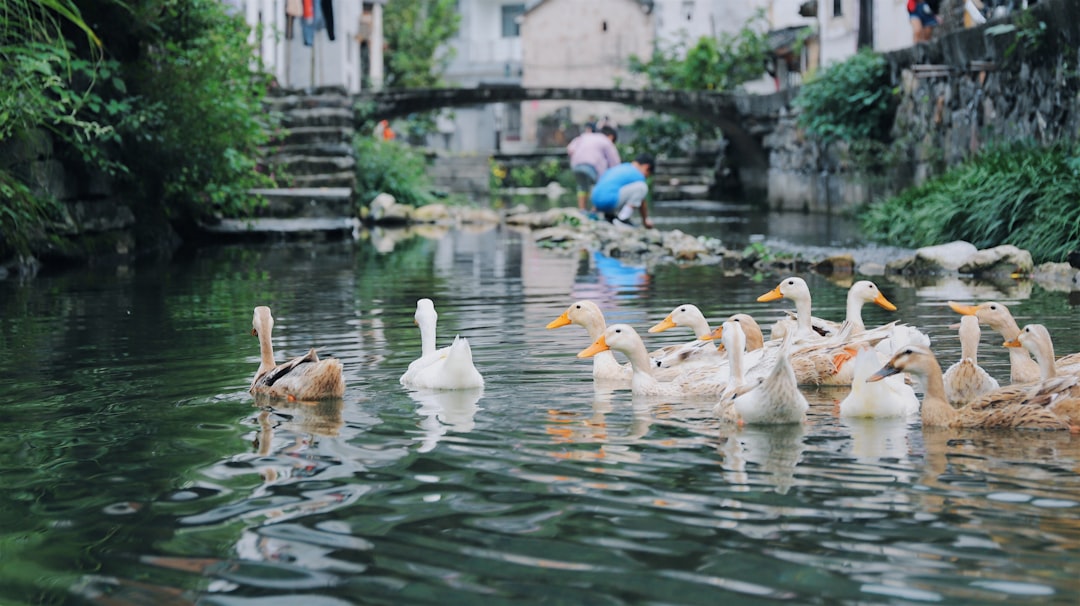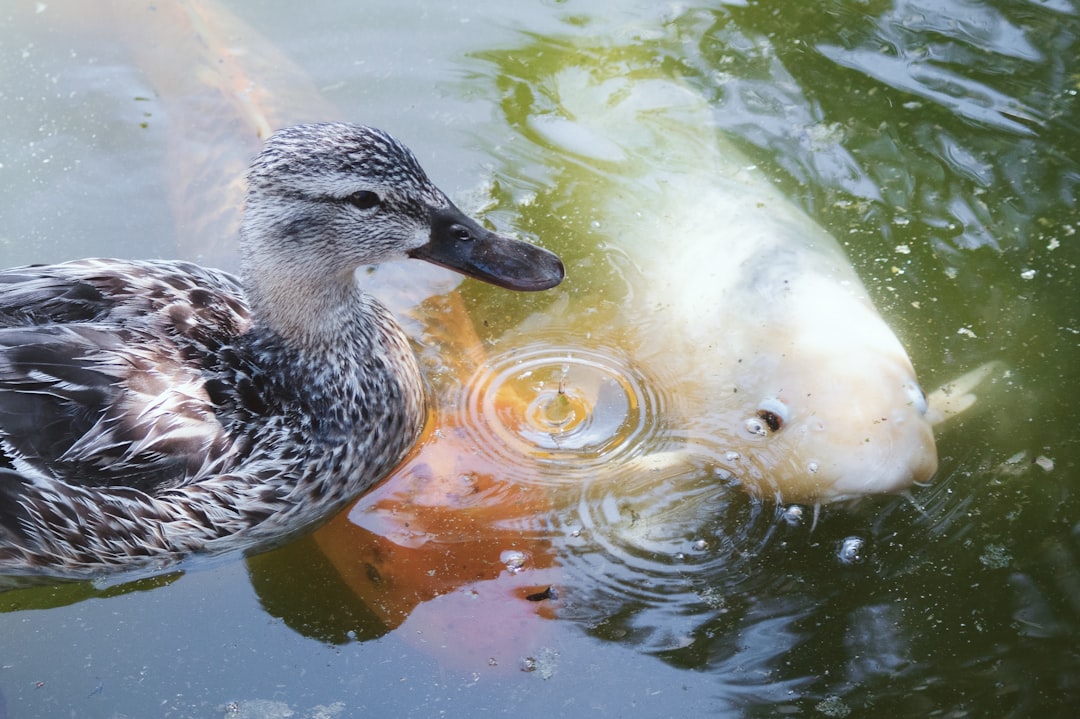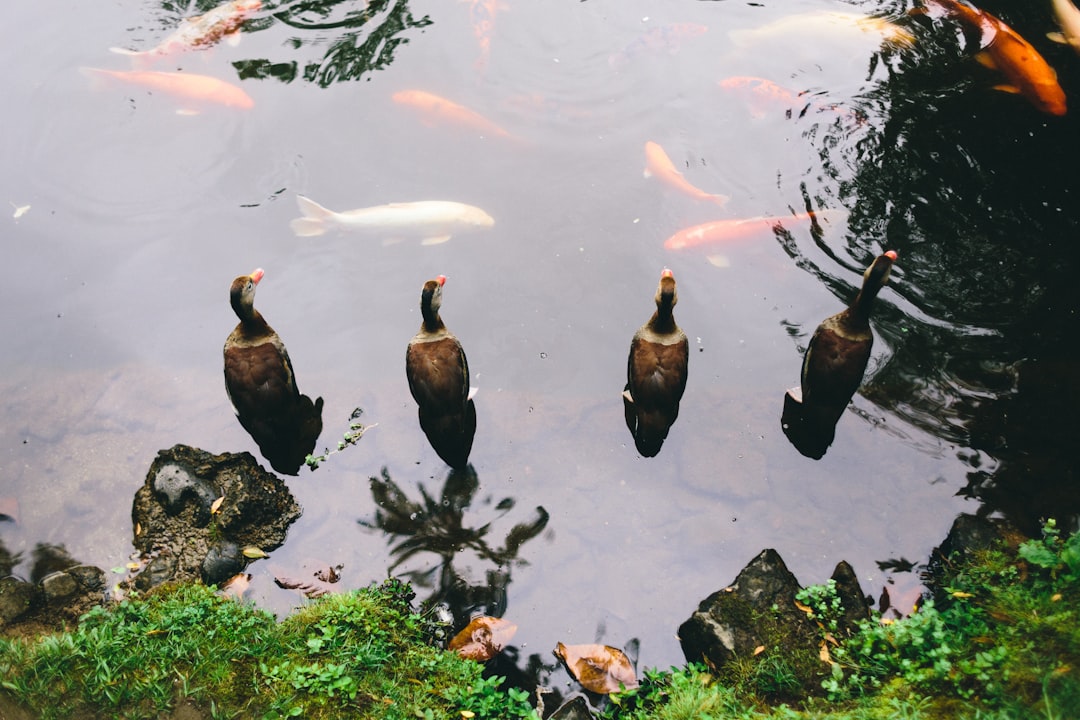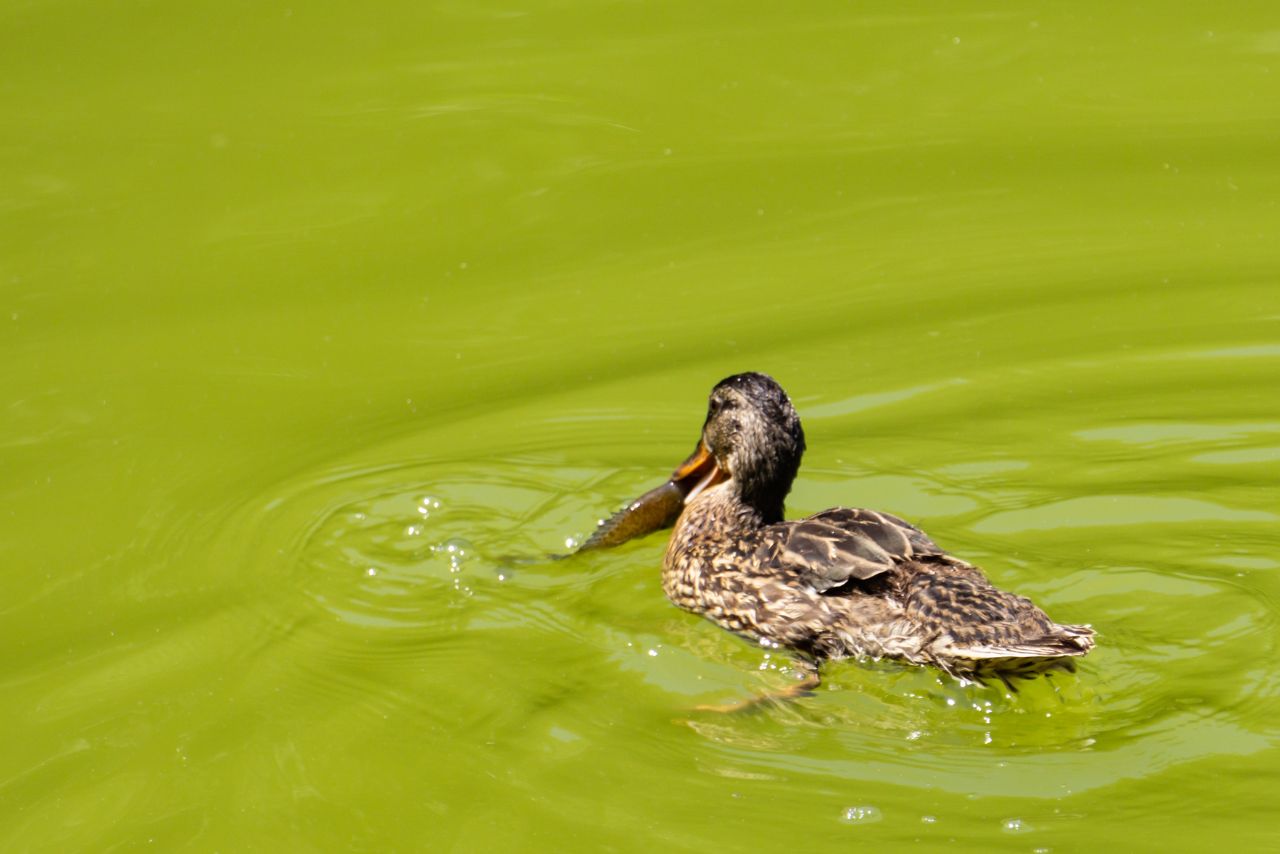Ducks are a common sight in ponds and water bodies, where they swim and feed on various aquatic organisms.
For many pond owners, the question of whether ducks eat pond fish is a critical one, especially if they have invested time and resources in stocking their ponds with fish.
Do Ducks Eat Pond Fish? The answer to this question is Yes, ducks do eat pond fish. They primarily feed on vegetation, insects, and small invertebrates, they will also consume fish if they are available.
The type of fish that ducks eat depends on the species of duck. Some ducks, such as mallards, prefer to eat small fish like minnows and fry. Other ducks, such as mergansers, are more specialized predators and eat larger fish like trout.
In this article, we will explore the feeding habits of ducks and answer the question of whether they eat pond fish or not.
Ducks have a varied diet and will eat whatever is readily available, including fish in ponds. However, the extent to which they consume fish will depend on the species of duck, the size of the fish, and the availability of other food sources.
Do Ducks Eat Pond Fish?
Yes, ducks do eat pond fish. In fact, fish are a major part of the diet of many species of ducks. Ducks have a broad bill that is perfect for scooping up small fish, and they are also very good at diving underwater to catch fish.
Fish are a major source of protein and other nutrients for ducks, and they play an important role in the diet of many species.
If you have a pond with fish in it, you may be concerned about ducks eating your fish. However, it is important to remember that ducks are not going to eat all of your fish.
Ducks are opportunistic feeders, and they will only eat fish that are easy to catch. If you have a large pond with plenty of fish, the ducks are not likely to have a significant impact on your fish population.
What Do Ducks Eat In Pond?
Aside from fish, ducks also feed on a variety of other organisms in ponds. These include aquatic plants, algae, snails, worms, frogs, and tadpoles.
Some ducks may also consume small mammals such as mice or shrews. Overall, their diet is diverse and adaptable to the available food sources in their environment.
Managing Duck Feeding In Ponds

Managing duck feeding in ponds is essential for maintaining a balanced ecosystem. Besides using protective measures to prevent ducks from eating pond fish, pond owners can also provide alternative food sources for them.
This could include scattering birdseed or cracked corn on the surrounding land to divert their attention from the pond.
Balancing The Needs Of Ducks And Other Pond Inhabitants
Balancing the needs of ducks and other pond inhabitants is crucial to maintain a healthy ecosystem.
While ducks can provide benefits such as controlling insect populations and dispersing plant seeds, their feeding habits can also disrupt the balance of the pond by consuming too many fish or destroying vegetation.
Pond owners should take a holistic approach to manage their ponds, considering factors such as water quality, nutrient levels, and biodiversity.
Types Of Fish Ducks Can Eat
Ducks can eat a variety of fish species, including goldfish, koi, and bluegill. However, larger fish such as bass or catfish may be too difficult for ducks to consume.
It’s also important to note that feeding ducks bread or other human foods is not recommended as it can lead to malnutrition and digestive issues.
Can You Put Ducks In A Fish Pond?

It may seem like a good idea to introduce ducks to a fish pond, it’s not always the best option. Ducks can disrupt the balance of the pond by consuming too many fish or destroying vegetation.
If you do choose to introduce ducks to your fish pond, it’s important to manage their feeding habits and ensure that they have alternative food sources available.
Providing nesting boxes or other structures can also help to create a suitable habitat for them.
Can Ducks Eat Cooked Fish?
It’s not recommended to feed cooked fish to ducks or any other wild animals. Cooked fish can contain harmful additives such as salt, oil, and spices that can be toxic to them.
Furthermore, feeding ducks human food can lead to malnutrition and digestive issues. It’s best to stick with their natural diet of vegetation and small organisms found in ponds.
Ducks are known to consume pond fish, they primarily feed on vegetation and other small organisms.
Can Ducks Eat Little Fish?

Yes, ducks can eat little fish. In fact, small fish such as minnows or mosquitofish are a common part of their diet in ponds.
However, pond owners should be mindful of the number of fish in their pond and manage duck feeding habits accordingly to prevent overconsumption.
Can Ducks Eat Fish Eggs?
Yes, Ducks can eat fish eggs and are known to consume them in ponds. This can have a significant impact on the fish population, as eggs are essential for the reproduction and survival of many fish species.
Why Do Ducks Eat Fish?
Ducks eat fish as a part of their natural diet. Fish provide them with essential nutrients such as protein and omega-3 fatty acids. In ponds, ducks have easy access to fish, making them a convenient food source.
However, overconsumption or destruction of fish can disrupt the balance of the pond ecosystem and negatively impact other species that rely on fish as a food source.
How Big A Fish Duck Can Catch?
The size of fish that ducks can catch depends on the species of the duck. Smaller ducks like teal or mallards have a more limited ability to catch larger fish due to their smaller bill size and weaker jaw muscles.
However, larger ducks such as mergansers or goldeneyes are specially adapted to dive and catch fish with their longer bills and strong necks. These ducks can eat fish up to 6 inches in length.
Do Ducks Eat Mosquito Fish?
Yes, ducks do eat mosquito fish. Mosquito fish are a common food source for ducks in ponds, especially during the summer months when mosquitoes are abundant.
It’s important to note that while mosquito fish may be a convenient food source for ducks, they are also beneficial in controlling mosquito populations in ponds.
What Type Of Fish Mallard Ducks Eat In Pond?
Mallard ducks primarily feed on small fish such as minnows or mosquitofish in ponds. However, they also consume other small organisms like insects, snails, and vegetation.
It’s important to note that while mallards are known to eat fish, they do not solely rely on them as a food source.
What Do Baby Ducks Eat In Ponds?

Baby ducks, also known as ducklings, primarily feed on insects and small aquatic organisms like snails, tadpoles, and small fish in ponds. Their diet is high in protein to support their rapid growth and development.
It’s important for pond owners to monitor the feeding habits of both adult ducks and ducklings to prevent overconsumption of any one food source.
A balanced diet is crucial for the health and development of all ducks in the pond ecosystem.
Are Fish Beneficial For Ducks?
Yes, fish can be beneficial for ducks. Fish provide ducks with essential nutrients like protein and omega-3 fatty acids, which are important for their overall health.
Its sources and implementing protective measures like netting or decoys can help prevent overconsumption of fish and ensure the overall health of the pond ecosystem.
How Often Should Ducks Eat Fish?
There is no set frequency for how often ducks should eat fish. Their feeding habits can vary depending on the availability of other food sources and their own individual preferences.
However, it’s important to monitor their consumption of fish in ponds and take steps to prevent overconsumption.
Providing alternative food sources like commercial waterfowl feed or cracked corn can help supplement their diet and reduce their reliance on fish.
Conclusion: Do Ducks Eat Pond Fish?
Ducks do eat pond fish, but it is important to manage their consumption to maintain a healthy ecosystem.
Mallard ducks primarily feed on small fish like minnows and mosquitofish, while baby ducks rely on insects and small aquatic organisms for their diet.
Fish can be beneficial for ducks as they provide essential nutrients, but pond owners should also consider providing alternative food sources and implementing protective measures like netting or decoys to prevent overconsumption of fish.
Understanding the feeding habits of ducks in ponds is crucial for maintaining a healthy environment for all species involved.
By managing the fish population and providing a balanced diet, both ducks and fish can coexist peacefully in a thriving pond ecosystem.
FAQs
Do All Ducks Eat Pond Fish?
No, not all ducks eat pond fish. Mallard ducks are known to consume small fish, but other duck species may have different feeding habits.
Can Overconsumption of Fish Harm the Pond Ecosystem?
Yes, overconsumption of fish by ducks can disrupt the balance of the pond ecosystem and harm other species that rely on fish as a food source.
What Are Some Alternative Food Sources for Ducks in Ponds?
Ducks can be fed commercial waterfowl feed or cracked corn as alternative food sources to supplement their diet and reduce their reliance on fish.
Should I Completely Prevent Ducks from Eating Pond Fish?
No, it’s important to maintain a balanced ecosystem where both ducks and fish can coexist peacefully. Providing alternative food sources and implementing protective measures can help manage the consumption of fish by ducks.
Why Is It Important to Monitor the Feeding Habits of Ducks in Ponds?
Monitoring the feeding habits of ducks in ponds is important to prevent overconsumption of any one food source and maintain a balanced diet for all species involved in the pond ecosystem.




